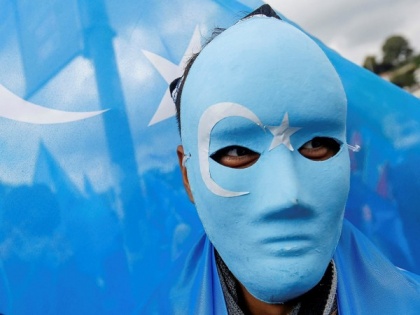Will the Uyghur Forced Labor Prevention Act make a difference?
By ANI | Published: July 9, 2022 03:11 AM2022-07-09T03:11:35+5:302022-07-09T12:31:11+5:30
The Uyghur Forced Labor Prevention Act (UFLPA), which came into effect last month, presumes that all goods from China's Xinjiang have been tainted by forced labour unless proven innocent, and vows to strike at the heart of slavery in northwest China.

Will the Uyghur Forced Labor Prevention Act make a difference?
The Uyghur Forced Labor Prevention Act (UFLPA), which came into effect last month, presumes that all goods from China's Xinjiang have been tainted by forced labour unless proven innocent, and vows to strike at the heart of slavery in northwest China.
Writing for the Diplomat magazine, Ruth Ingram has contended that the act is fraught with loopholes and ambiguities, and a failure to address these could render it meaningless.
"It requires importers to confirm beyond a shadow of a doubt that their supply chains are clean. One million businesses globally buying and selling everyday products could be impacted by the new law, and the list of key industries implicated runs into thousands," said Ingram, a researcher who has written extensively for the Central Asia-Caucasus publication, Institute of War and Peace Reporting, and other publications.
The import of Chinese goods manufactured by forced labour in Xinjiang province will now be blocked after the US-sponsored Uyghur Forced Labor Prevention Act came into effect on June 21.
The Act targets goods "originating from the northern autonomous region of Xinjiang" - a major manufacturing hub of China.The Americans brought in the law saying Xinjiang has scores of "mass internment camps subjecting thousands of detainees from Muslim minorities to forced labour as well as other abuses". The Chinese government has dismissed the charges and warned the West against implementing the Act saying it could disrupt business ties between the two countries.
The US Department of Homeland Security (DHS) in June second week presented to US Congress the "Strategy to Prevent the Importation of Goods Mined, Produced, or Manufactured with Forced Labor in the People's Republic of China".
What does the new Act decree? "The UFLPA establishes a rebuttable presumption that goods mined, produced, or manufactured wholly or in part in Xinjiang or by an entity on the UFLPA Entity List are prohibited from U.S. importation under 19 U.S.C. SS 1307."
Unless an importer of goods from China can convince the US authorities with clear evidence that the goods were not produced by forced labour, US Customs and Border Protection (CBP) will "apply the rebuttable presumption under the UFLPA to merchandise imported on or after June 21, 2022".
The CBP will exercise its authority under the customs laws to "detain, exclude, or seize and forfeit shipments that are within the scope of the UFLPA".
According to Ingram, new measures mean nothing without the cooperation of the democratic world. "But the new measures mean nothing without the cooperation of the democratic world. If Canada, Europe, and other countries involved in procurement refuse to pull their weight, goods will simply be redirected and the new law will have little impact on the ground," he said.
"While the facts are clear, and the need to rein in Beijing's human rights violations irrefutable, implementation of the act is a mammoth undertaking and one that is likely not only to considerably disrupt U.S. imports, but also threaten supply chains around the world," he added.
In recent years, the US Government has made businesses and importers aware of forced labour practices in the Xinjiang region. In July 2020, DHS, alongside the Departments of State, Treasury, Commerce, Labor, and the Office of the US Trade Representative, issued a "Xinjiang Supply Chain Business Advisory" to highlight the heightened risks for businesses with supply chain and investment links to Xinjiang.
Rights groups say Chinese authorities have committed crimes against humanity against Uyghurs and other Turkic Muslims in the northwest Xinjiang region, detaining as many as one million people and subjecting detainees and others to forced labour inside and outside Xinjiang.
( With inputs from ANI )
Disclaimer: This post has been auto-published from an agency feed without any modifications to the text and has not been reviewed by an editor
Open in app